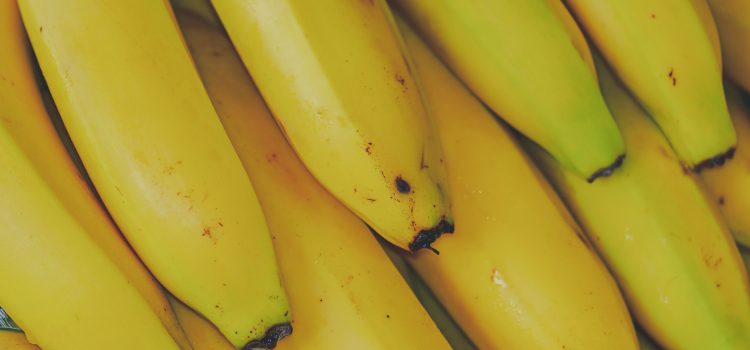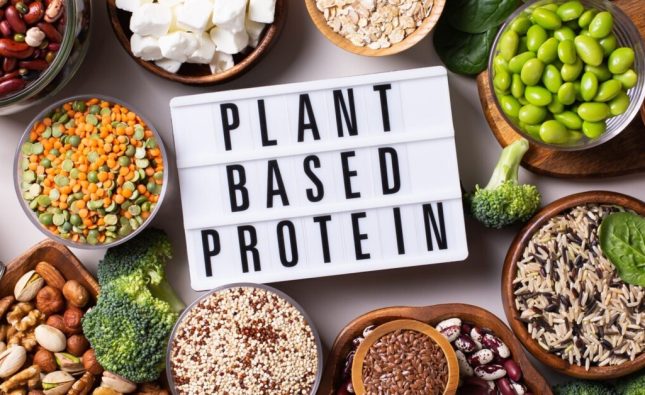
Are you a fan of fruits but find it hard to choose which ones are the best for your health? Look no further than the humble banana, one of the most popular and beloved fruits in the world. But how does this yellow fruit stack up against other fruits in terms of nutrition and health benefits? In this blog post, we’ll compare bananas with other common fruits to help you make informed decisions about what to add to your diet. So grab a bunch of bananas and let’s dive into this fruity comparison!
What are bananas?
Bananas are a type of fruit that belong to the Musaceae family, which includes nearly 50 different species. They are native to tropical regions such as Southeast Asia and Australia but can now be found in almost every part of the world.
Bananas are one of the most popular fruits globally due to their sweet taste, convenient packaging, and exceptional nutritional value. A medium-sized banana contains about 105 calories and is loaded with essential vitamins and minerals like vitamin C, potassium, magnesium, fiber, and antioxidants.
One unique aspect of bananas is that they contain resistant starch—a type of indigestible carbohydrate that acts similarly to soluble fiber in our bodies. Resistant starch helps regulate blood sugar levels, aids digestion by feeding good bacteria in our gut microbiome, promotes satiety or fullness after meals.
In addition to being delicious on their own or added into smoothies or desserts; bananas also have numerous health benefits including improved heart health and lower risk for chronic diseases like cancer thanks to its antioxidant content. So next time you reach for a snack consider reaching for this powerhouse fruit!
What are other fruits?
Other fruits are a vast range of options that can add variety to your diet. From sweet and juicy berries, to tart citrus fruits, to exotic tropical varieties, there’s no shortage of choices when it comes to incorporating other fruits into your meals.
Berries like blueberries, strawberries, raspberries and blackberries are packed with antioxidants and vitamins. Citrus fruits like oranges, lemons and grapefruits are high in vitamin C which helps boost the immune system. Apples and pears provide fiber which helps keep digestion regular while kiwis offer a dose of vitamin K for bone health.
Tropical fruits such as pineapples, mangoes and papayas offer unique flavors along with vitamins A and C. Grapes contain resveratrol which has been linked to heart health benefits while figs provide potassium that is essential for maintaining healthy blood pressure levels.
Incorporating different types of fruit into your diet ensures you’re getting a wide range of nutrients while keeping things interesting in terms of taste.
How are they different in nutrition and health?
Bananas and other fruits have varying nutritional contents, which make them different in terms of health benefits. Bananas are high in fiber, vitamin C, B6, and potassium. They also contain antioxidants that help protect the body against damage from free radicals.
On the other hand, some fruits like berries are packed with antioxidants called anthocyanins that can fight inflammation and improve heart health. Meanwhile, citrus fruits such as oranges are known for their high levels of vitamin C which helps boost the immune system.
Other fruit options include apples that contain soluble fiber to aid digestion or kiwis that provide a healthy dose of vitamin K & E while being low in calories.
The difference between bananas and other fruits is not just limited to their nutrient content but also how they affect one’s blood sugar levels. Bananas have a higher glycemic index (GI) compared to most fruits because of its naturally occurring sugars which means it could cause spikes in blood sugar levels if consumed excessively.
Every fruit has its unique set of nutrients making each one beneficial for overall health when consumed as part of a balanced diet.
Which is healthier, bananas or other fruits?
When it comes to comparing bananas and other fruits, it’s important to understand that each fruit has its own unique set of nutrients. Bananas are an excellent source of potassium, which is vital for heart health and helps maintain healthy blood pressure levels. They also contain vitamin C, vitamin B6, magnesium, and fiber.
Other fruits such as berries are rich in antioxidants which help protect the body against free radicals that can cause cell damage. Apples are a great source of soluble fiber which aids digestion and may lower cholesterol levels. Citrus fruits like oranges and grapefruits provide a good amount of vitamin C along with folate, potassium, and thiamine.
While bananas have their own set of health benefits, they cannot be compared to other fruits as each fruit offers different nutrients necessary for overall health. It’s important to consume a variety of fruits to ensure you’re getting all the essential vitamins and minerals your body needs.
Ultimately, choosing between bananas or other fruits isn’t about determining which one is healthier; it’s about incorporating a diverse range of nutrient-dense foods into your diet for optimal health benefits.
Conclusion
After examining the nutritional profiles of bananas and other fruits, it’s clear that both offer a variety of health benefits. Bananas are an excellent source of potassium, fiber, and vitamin C, while other fruits like berries provide high levels of antioxidants and phytochemicals.
When it comes to choosing between bananas and other fruits, there is no one-size-fits-all answer. It depends on your individual dietary needs and preferences. If you’re looking for a quick energy boost or need to up your potassium intake, reach for a banana. But if you want to maximize your antioxidant intake or add some variety to your diet, try incorporating more berries or citrus fruits into your meals.
The key takeaway is that all fruits have something valuable to offer in terms of nutrition and health benefits. So whether you prefer bananas or another type of fruit, aim to include a variety in your daily diet for optimal health outcomes.










